Birendra Jha
Generative AI-driven forecasting of oil production
Sep 24, 2024Abstract:Forecasting oil production from oilfields with multiple wells is an important problem in petroleum and geothermal energy extraction, as well as energy storage technologies. The accuracy of oil forecasts is a critical determinant of economic projections, hydrocarbon reserves estimation, construction of fluid processing facilities, and energy price fluctuations. Leveraging generative AI techniques, we model time series forecasting of oil and water productions across four multi-well sites spanning four decades. Our goal is to effectively model uncertainties and make precise forecasts to inform decision-making processes at the field scale. We utilize an autoregressive model known as TimeGrad and a variant of a transformer architecture named Informer, tailored specifically for forecasting long sequence time series data. Predictions from both TimeGrad and Informer closely align with the ground truth data. The overall performance of the Informer stands out, demonstrating greater efficiency compared to TimeGrad in forecasting oil production rates across all sites.
Detecting Cloud-Based Phishing Attacks by Combining Deep Learning Models
Apr 05, 2022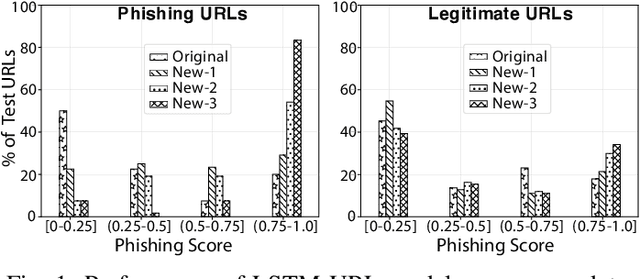
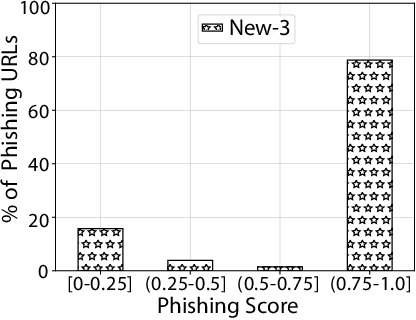
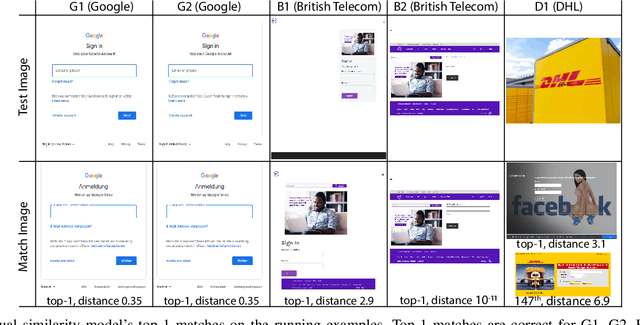
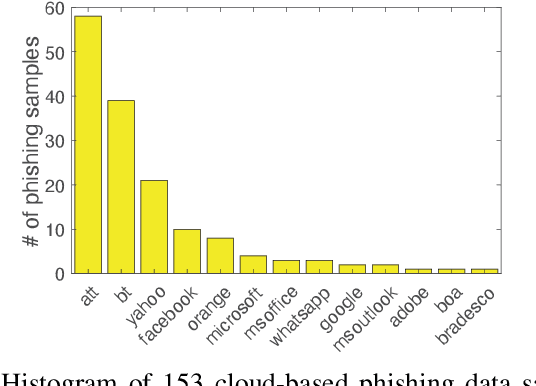
Abstract:Web-based phishing attacks nowadays exploit popular cloud web hosting services and apps such as Google Sites and Typeform for hosting their attacks. Since these attacks originate from reputable domains and IP addresses of the cloud services, traditional phishing detection methods such as IP reputation monitoring and blacklisting are not very effective. Here we investigate the effectiveness of deep learning models in detecting this class of cloud-based phishing attacks. Specifically, we evaluate deep learning models for three phishing detection methods--LSTM model for URL analysis, YOLOv2 model for logo analysis, and triplet network model for visual similarity analysis. We train the models using well-known datasets and test their performance on phishing attacks in the wild. Our results qualitatively explain why the models succeed or fail. Furthermore, our results highlight how combining results from the individual models can improve the effectiveness of detecting cloud-based phishing attacks.
Distributed Deep Learning Using Volunteer Computing-Like Paradigm
Apr 02, 2021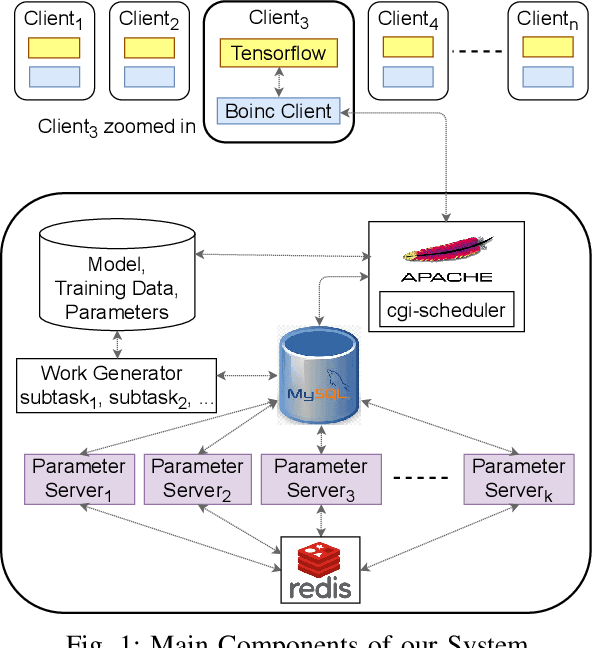
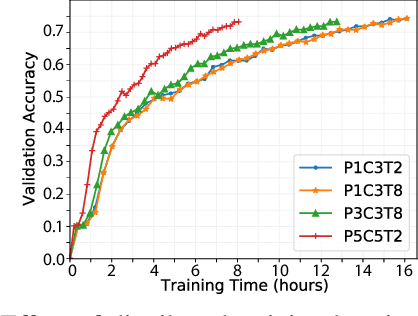
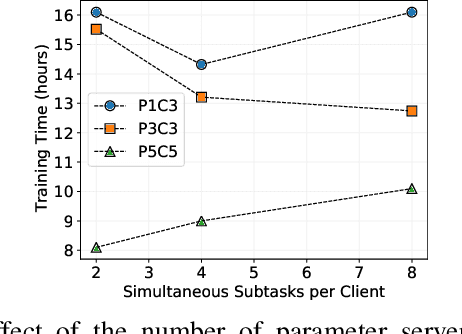
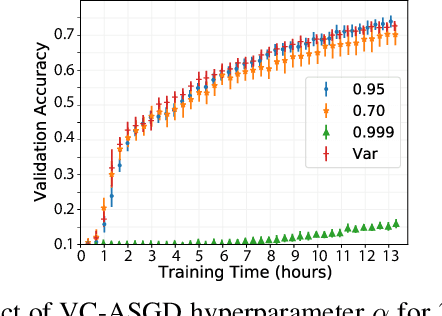
Abstract:Use of Deep Learning (DL) in commercial applications such as image classification, sentiment analysis and speech recognition is increasing. When training DL models with large number of parameters and/or large datasets, cost and speed of training can become prohibitive. Distributed DL training solutions that split a training job into subtasks and execute them over multiple nodes can decrease training time. However, the cost of current solutions, built predominantly for cluster computing systems, can still be an issue. In contrast to cluster computing systems, Volunteer Computing (VC) systems can lower the cost of computing, but applications running on VC systems have to handle fault tolerance, variable network latency and heterogeneity of compute nodes, and the current solutions are not designed to do so. We design a distributed solution that can run DL training on a VC system by using a data parallel approach. We implement a novel asynchronous SGD scheme called VC-ASGD suited for VC systems. In contrast to traditional VC systems that lower cost by using untrustworthy volunteer devices, we lower cost by leveraging preemptible computing instances on commercial cloud platforms. By using preemptible instances that require applications to be fault tolerant, we lower cost by 70-90% and improve data security.
 Add to Chrome
Add to Chrome Add to Firefox
Add to Firefox Add to Edge
Add to Edge